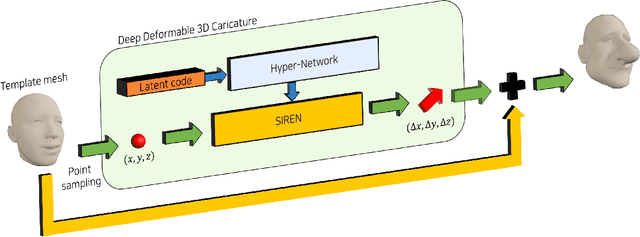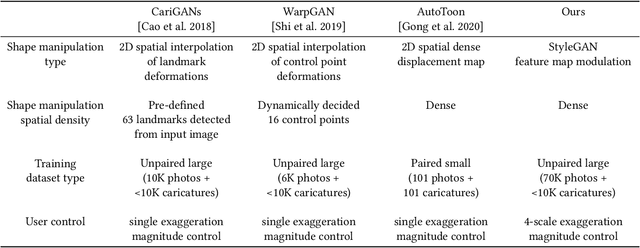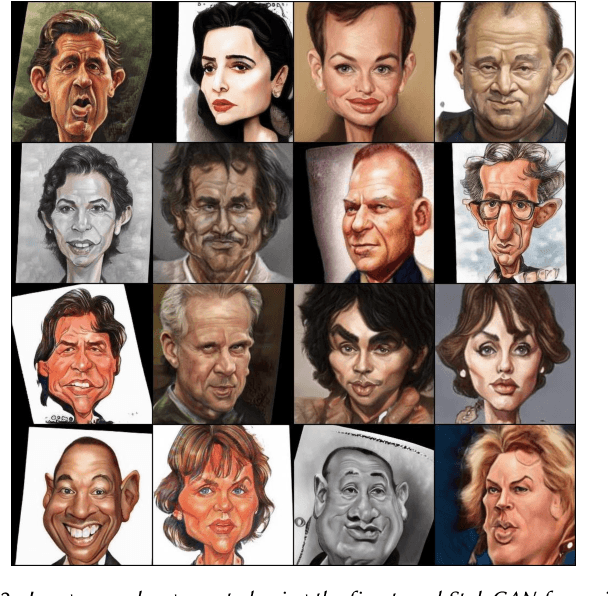Wonjong Jang
Deep Deformable 3D Caricatures with Learned Shape Control
Jul 29, 2022



Abstract:A 3D caricature is an exaggerated 3D depiction of a human face. The goal of this paper is to model the variations of 3D caricatures in a compact parameter space so that we can provide a useful data-driven toolkit for handling 3D caricature deformations. To achieve the goal, we propose an MLP-based framework for building a deformable surface model, which takes a latent code and produces a 3D surface. In the framework, a SIREN MLP models a function that takes a 3D position on a fixed template surface and returns a 3D displacement vector for the input position. We create variations of 3D surfaces by learning a hypernetwork that takes a latent code and produces the parameters of the MLP. Once learned, our deformable model provides a nice editing space for 3D caricatures, supporting label-based semantic editing and point-handle-based deformation, both of which produce highly exaggerated and natural 3D caricature shapes. We also demonstrate other applications of our deformable model, such as automatic 3D caricature creation.
StyleCariGAN: Caricature Generation via StyleGAN Feature Map Modulation
Jul 09, 2021



Abstract:We present a caricature generation framework based on shape and style manipulation using StyleGAN. Our framework, dubbed StyleCariGAN, automatically creates a realistic and detailed caricature from an input photo with optional controls on shape exaggeration degree and color stylization type. The key component of our method is shape exaggeration blocks that are used for modulating coarse layer feature maps of StyleGAN to produce desirable caricature shape exaggerations. We first build a layer-mixed StyleGAN for photo-to-caricature style conversion by swapping fine layers of the StyleGAN for photos to the corresponding layers of the StyleGAN trained to generate caricatures. Given an input photo, the layer-mixed model produces detailed color stylization for a caricature but without shape exaggerations. We then append shape exaggeration blocks to the coarse layers of the layer-mixed model and train the blocks to create shape exaggerations while preserving the characteristic appearances of the input. Experimental results show that our StyleCariGAN generates realistic and detailed caricatures compared to the current state-of-the-art methods. We demonstrate StyleCariGAN also supports other StyleGAN-based image manipulations, such as facial expression control.
* Accepted to SIGGRAPH 2021. For supplementary material, see http://cg.postech.ac.kr/papers/2021_StyleCariGAN_supp.zip
 Add to Chrome
Add to Chrome Add to Firefox
Add to Firefox Add to Edge
Add to Edge